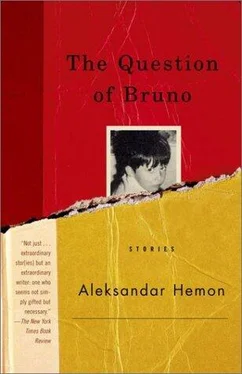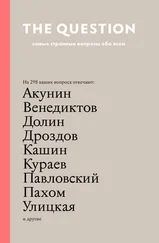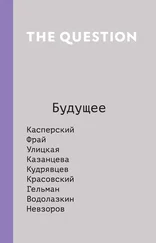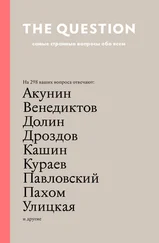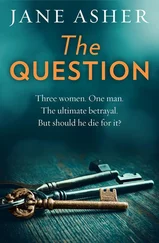“Romaine lettuce, iceberg lettuce, what’s difference?” Pronek said, with a sudden vision of stuffing the lettuce leaf into the man’s mouth.
“May I talk to someone who can speak English, please?” the man said and pushed his tray away with resolve, as the croissant shuddered and slid to the edge of the plate. Pronek felt pain climbing up his calves, passing his pelvis, to settle in his stomach as a cramp. He wanted to say something, something clever that would smash the man, but could not think of any English words that could convey the magnitude of the absurdity, other than: “Romaine lettuce, iceberg lettuce, what’s difference?” He kept mumbling it to himself, like a magic word that would make him fly, and wobbled away in a vain hope that the man might just give it up.
But the man, naturally, did not give it up, for he demanded — and rightly so — full and responsible service for his hard-earned money.
Pronek kept cleaning the trays maniacally, filling up the bins with eviscerated bread-bowls, shriveled croissants, pizza edges, jagged watermelon slices, salad tidbits, slimy nonfat yogurt, jumbo-gumbo slough, filling up garbage bags, as if filling them up would stop the flow of time and stop Dawn from coming over to him with the man. As Dawn was walking toward him with the livid man in tow, Hemon looked at him askance, dragging a bag cadaver, as if trying to understand what might have possessed him to disobey. Pronek wanted to tell him, but Hemon, of course, would not have understood.
Thus, Pronek stood facing the man, as he ranted, pointing in the general direction of his croissant, while Dawn stood alternately looking at the tips of her blue shoes and glancing at Pronek, trying to place him as the main character of the man’s story. When the man stopped his recitation, and looked at Dawn expecting her to come to the verdict, Pronek whimpered: “Romaine, iceberg, all same.”
“I’m sorry,” Dawn said. “But we have to let you go.”
“I go,” Pronek said. “No problem. I go.”
Mind for Dummies
In the spring of 1993, Pronek found out, after a series of complicated information transactions — which involved a Red Cross person in Sarajevo, a ham-radio operator, a cousin residing in France, and Zbisiek, one of the Polish construction workers, who picked up the phone — that his parents were on the list for a convoy that would soon leave the city.
“When?” Pronek asked Zbisiek, whose blue eyes, framed by ruptured blood vessels, were moist with Slavic compassion.
“He didn’t said it,” Zbisiek said.
It was then that Pronek began fearing for his parents’ lives, because — and this might sound strange to us — he realized that if they were killed they would not be able to get on the bus and leave the city, and, consequently, he would never see them again. He realized all of a sudden that people in Sarajevo were dying all the time, and that meant that whatever they wanted or needed to do next they wouldn’t be able to do if they died: get up and walk in the dark, cold apartment; pee and then wash the dead toilet with a canful of water, previously used for washing their bodies; light a cigarette while hiding in the darkest corner, lest the patient sniper see the glimmer; sit down; cower; burst into tears; stand in a bread line, waiting for the soundless shell to land and kill. Before that, Pronek would feel for the people in Sarajevo he would see on TV, and the suffering was immense and well rendered. They had seemed capable of coming to the end of suffering, just like all the other suffering people, but death meant even the end of suffering. So he would watch CNN footage of people with familiar faces crawling in their own blood, begging the unflinching camera for help; people twitching and throttling as their stumps spurted blood; people who were trying to help them dropping like an imploded building, shot by a sniper; and he would know that was the end of their lives — that they would never touch a doorknob; never have their toes hurting in uncomfortable shoes; never flush a toilet; wear a condom; eat lettuce; suffer. Pronek realized that he had never known what death was and that he was never entirely present in his own life, because he thought — without really thinking — that it would last forever. He never thought enough of other people — his parents, for instance — because he never thought that they might die.
He looked up the word in the dictionary: “Death —the complete and irreversible cessation of life in an organism or part of an organism.”
He remembered how his mother used to whine about unfolding his sticky, soggy socks before dropping them in the washing machine, and it hurt to know that if she never got on the convoy, he would never be able to tell her he was sorry now.
He began devouring Snickers and Babe Ruths and Cheerios and Doritos and burritos and everything he could put into his mouth, as if it were his ultimate morsel, so he gained thirty flabby pounds.
So long, handsome youth.
He worked as a busboy in a Mexican restaurant, until he dropped a pitcher of sky-blue margaritas into the lap of the local cop weighing some three hundred pounds.
He panicked, walking down the street, upon realizing that he didn’t know the names of the trees (maple, chestnut, lime, oak, etc.) and flowers (marigold, petunia, lily, iris, etc.) and cars (Toyota, Nissan, Cadillac, Infiniti, etc.), and they all appeared as blank spots, like pages out of a photo album from which all the pictures had been ripped out. He forced himself to divert his hollow gaze from the streets he didn’t comprehend, and walked looking before his feet: concrete cracks, flat cigarette butts, broken twigs, petrified footprints. He wished he were blind.
He enjoyed a series of interminable sinus infections, which produced a host of splitting headaches and stuffed his ears with thick earwax, whereby all the sounds around him were transformed into a continuous shushing hum, while he himself started mumbling. He couldn’t understand anything people were saying to him, as he murmured incomprehensibly back at them. Accordingly, he started mumbling to himself, giggling, grimacing, and growling in response to his own inaudible discourse.
He had an interview for the position of a busboy in a Vietnamese restaurant, while the interviewer — a puny bespectacled man, armed with a cellular phone sheathed on his hip — looked at him, vexed.
He slept surrounded by paint cans, in the midst of a noxious mist. He would have to take the ladder out so he could lay the mattress down (the bed was gone), since the Poles had begun taking his room apart. The Poles clearly thought he had lost his mind, and one day gave him thirty-three dollars they had collected among themselves. Pronek muttered a thank-you in some super-Slavic language.
He stopped killing cockroaches, after he came back from an aimless walk and found the roach motel packed. He picked it up, yesterday’s dried-up roaches hanging from the ceiling, and today’s roach, stuck in sweet-smelling glue, turned its antennas toward him, greeting him. “Honey,” Pronek said. “I’m home.”
He began hating the blithe meaninglessness of baseball.
He worked as a parking assistant in the vicinity of Wrigley Field, waving at cars on ball-game days, in order to mesmerize them into parking. He quit the job upon a painful epiphany of his absurdity, as he revolved his arm like a windmill.
He began thinking of himself as someone else — a cartoon character, a dog, a detective, a madman — and began fantasizing about abandoning his body altogether and becoming nothing, switching it off like the TV.
He couldn’t watch movies in which people were killed and blown away with ease, because he began reconstructing the process of creating the blood-spurting effects and the movies became transparent.
Читать дальше
